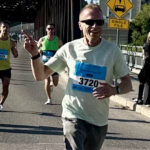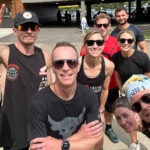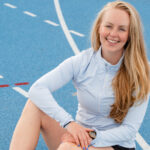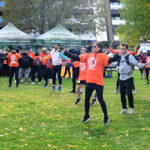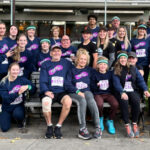When the COVID-19 pandemic forced the one-year postponement of the Tokyo Olympics, Courtney Hufsmith felt like she’d been handed a life line.
The University of Saskatchewan cross-country and track standout had just been diagnosed with six stress fractures in her left foot. She hoped the delay of the Games would give her time to recover and train back to a level where she’d have a good shot at making the Canadian Olympic team in the 1,500 metres.
In the end it was not to be — but Hufsmith, 22, doesn’t regret the journey she’s been on these past 19 months.
“I actually think I learned more from not qualifying (for the Olympic team) than if I had qualified this year,” she says.
Hufsmith says her stress fractures were most likely the result of Relative Energy Deficiency in Sport (RED-S) — a syndrome that occurs when a person does not take in enough energy to support the amount of exercise they’re doing. This can be caused by overtraining, restricting eating or both. Athletes suffering from RED-S can have weaker bones than those with adequate nutrition and have a higher rate of stress fractures.
Hufsmith said she’s struggled with RED-S as a result of overtraining for the past three years and continually makes an effort to work on her fuelling. At the time her stress fractures were diagnosed in February 2020, “I thought that I was doing all the right things,” she said.
“It was just an accumulation of dealing with (RED-S) for so many years … It’s something that I’m definitely always working on, but it’s not something that just easily goes away.”
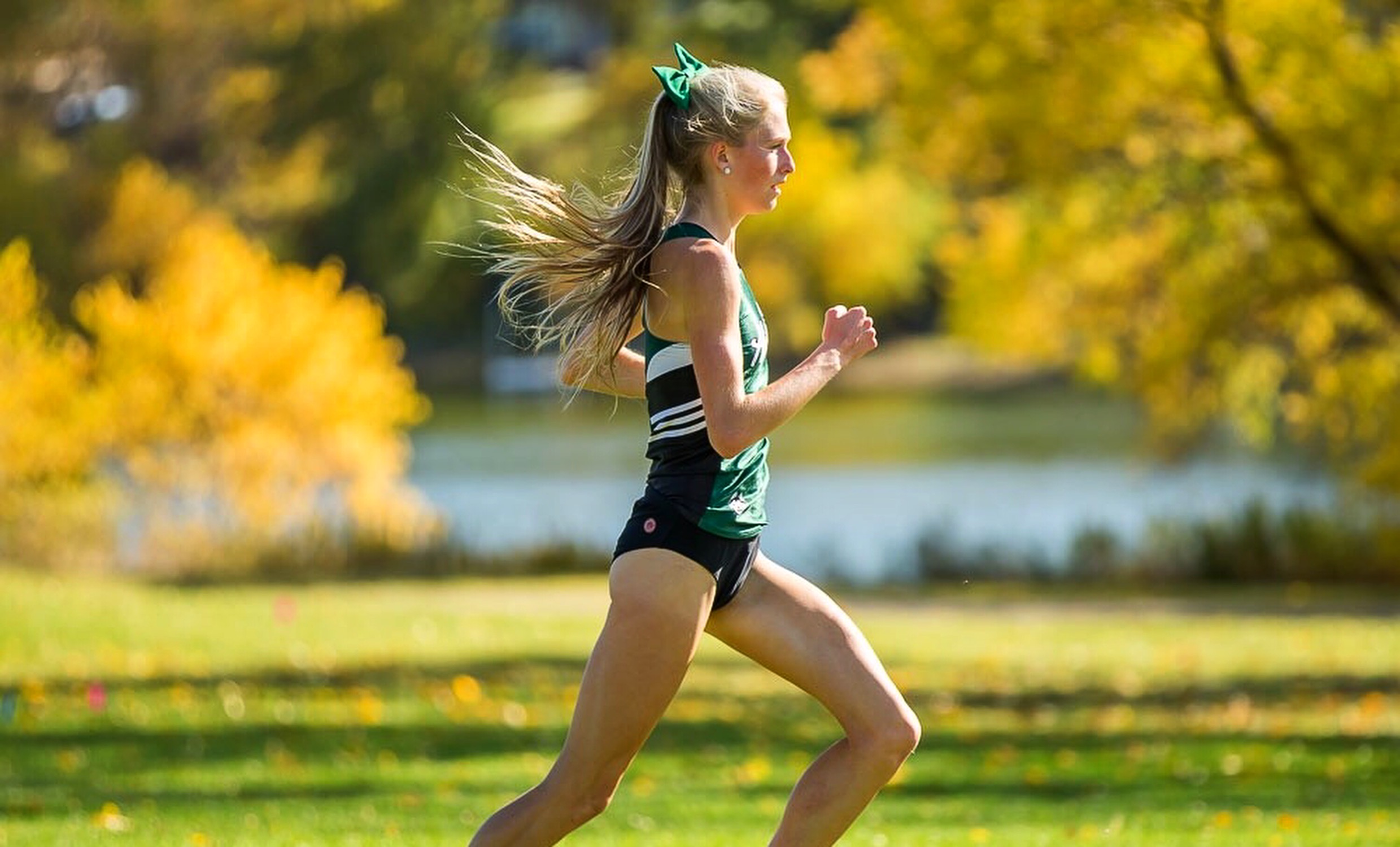
Today, part of her strategy for overcoming RED-S is focussing on accepting that not everything can be perfect, optimized and structured rather than attempting to plan meals to perfection to replenish training demands. She’s also more confident in her ability to end a workout early if she realizes she is fatigued or feeling a niggling injury.
Hufsmith returned to running by the end of June 2020 and cautiously built back mileage to pre-injury levels. Her training started to look “normal” in March and Hufsmith took off to British Columbia, hoping to take advantage of the good weather to have the optimal training block leading up to the Olympic trials in June.
Every week, Hufsmith said she experienced glimmers of hope in her training — moments when she felt like her pre-injury self — but things just didn’t come together on race day. She ran 4:23 at the Canadian Olympic trials and then 4:18 at the Montreal Athletics Classic the following weekend, well off her personal best time of 4:10 and the Olympic standard of 4:04.
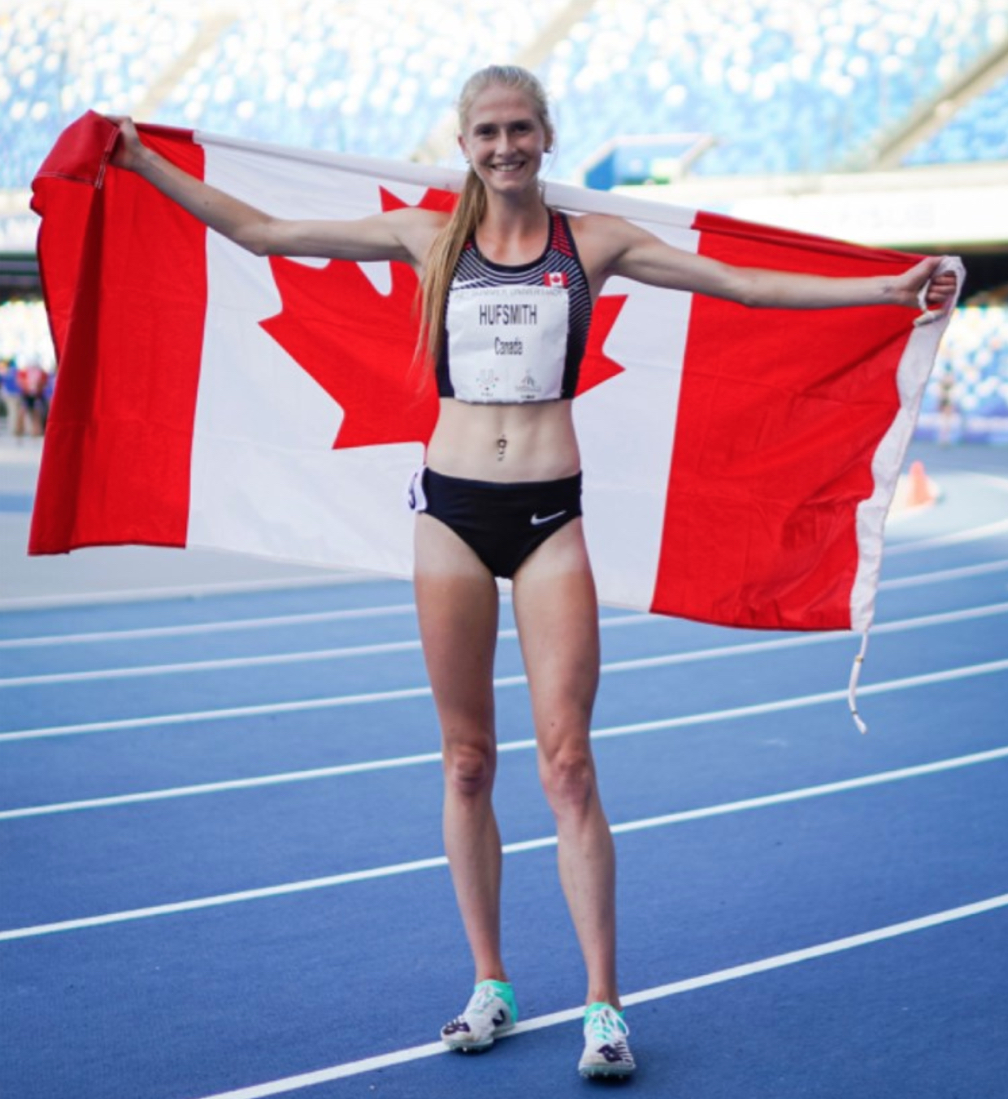
Part of the struggle was that her body simply needed more time to get back in racing form. And being away from her home, friends and family in Saskatoon was harder and lonelier than she had expected.
“Probably the biggest thing was just emotionally how I was doing,” she said. “Not being around people in training at all, just being completely on my own, was having the biggest toll.”
Now, having returned home and having a few more months of training under her belt, Hufsmith is in a good place.
“I feel like I’m really getting momentum again and back into running. It just took some time,” she says.
Hufsmith has three classes left to finish off her marketing degree and is making the most of her last year of eligibility with the U of S Huskies. While she had initially planned to sit out the cross country season and focus on track, she realized she’d be missing out if she didn’t throw herself into everything.
She still has aspirations of making an Olympic team, but right now she’s turning her mind to short-term goals. The ones she’s set for this season are not as outcome oriented as they were earlier in her university career. What’s important this year is to train smart and have fun.
Hufsmith says so much of her fourth year with the Huskies was spent focussed on making the Olympic team that she wasn’t always able to live in the moment while she was training and competing with them.
“I look back and kind of regret not being as committed to it,” she says. “Right now I’m just committed to the Huskie season. Whatever happens beyond that, I’ll reassess once I get my degree and finished my eligibility.”
Find the Huskies cross country schedule online. The Huskies host the 2021 Canada West Cross Country Championships on Oct. 30.
Do you know someone in Saskatchewan with an inspiring running story? Email Brainsport Times editor Andrea Hill at andrea@brainsport.ca.





